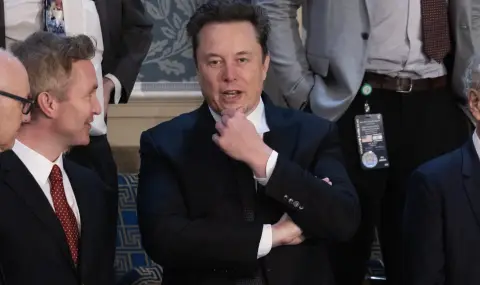Elon Musk, owner of the social media platform X, on Friday called Australia's center-left government "fascists" because of a proposed law that would fine social media companies if they fail to limit the spread of disinformation online, reported "Reuters", quoted by News.bg.
Australia's Labor government on Thursday introduced a new law that could fine internet platforms up to 5% of global revenue if they allow disinformation to spread, joining a global effort to crack down on big tech companies.
The proposed measures will oblige platforms to develop codes of conduct to limit dangerous and false information, which will be approved by a regulatory authority. If the platform does not create such a code, the regulator will introduce its own rules and impose fines for non-compliance.
Musk, a frequent defender of free speech, responded to an X post related to news of the bill by calling it one word: "Fascists".
A spokesman for Communications Minister Michelle Rowland said via email that all companies operating in Australia must comply with local laws.
"This bill increases the transparency and accountability of platforms to consumers and the Australian public," Rowland noted.
According to Assistant Treasury Secretary Stephen Jones, social networks cannot publish fraudulent content, fake news and live violence under the pretext of protecting free speech. He stated this to ABC television.
In April, X clashed with the Australian government when the company challenged in court an order from a cyber regulator to remove posts related to a knife attack in Sydney. Prime Minister Anthony Albanese then described Musk as an "arrogant billionaire".
The regulator subsequently withdrew its complaint after failing in federal court. X blocked the video for Australian users but refused to remove it globally, arguing that one country's laws should not control the internet globally.
